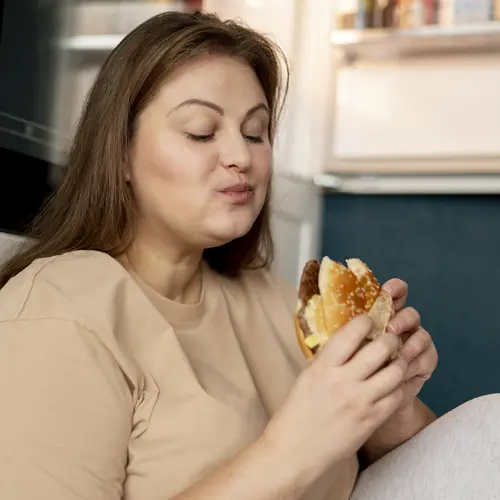Table of Contents
The Impact of Social Media on Plastic Surgery Decisions
In the age of Instagram, TikTok, and Snapchat, social media has become a powerful force shaping how we perceive beauty, self-image, and even our bodies. With influencers, celebrities, and everyday users constantly sharing their lives and appearances online, the pressure to look a certain way has never been more intense. This has led to a significant rise in the number of people seeking plastic surgery, with many citing social media as a major influence in their decision-making process.
In this article, we’ll explore the impact of social media on plastic surgery decisions, including how platforms like Instagram and TikTok are shaping beauty standards, the role of influencers and filters, and the potential psychological effects of constantly comparing oneself to others online.
How Social Media Shapes Beauty Standards
Social media platforms are visual by nature, with users posting photos and videos that often highlight their best features. Over time, this has created a new set of beauty standards, where certain facial features and body types are idealized and celebrated. For example, the “Instagram face” — characterized by high cheekbones, full lips, a small nose, and flawless skin — has become a popular look that many aspire to achieve.
The Rise of the "Instagram Face"
The term “Instagram face” refers to a specific look that has become popular on social media, particularly on Instagram. This look is often associated with features that are enhanced through cosmetic procedures, such as:
Full lips (often achieved through lip fillers)
High cheekbones (enhanced with dermal fillers)
A slim, contoured nose (achieved through rhinoplasty or non-surgical nose jobs)
Smooth, wrinkle-free skin (maintained through Botox or other injectables)
These features are often exaggerated by filters and photo-editing apps, making them appear even more pronounced. As a result, many individuals feel pressure to undergo plastic surgery to achieve this idealized look in real life.
Body Image and Social Media
In addition to facial features, social media has also influenced perceptions of body image. Platforms like Instagram and TikTok are filled with images of individuals with toned abs, slim waists, and curvy hips, leading to the popularization of the “hourglass figure.” Procedures like Brazilian butt lifts (BBL), liposuction, and breast augmentation have become increasingly popular as people strive to achieve the body types they see online.
However, it’s important to note that many of the images shared on social media are heavily edited or filtered, creating unrealistic expectations of what the human body should look like. This can lead to feelings of inadequacy and dissatisfaction with one’s appearance, which may drive individuals to seek plastic surgery.
The Role of Influencers in Plastic Surgery Trends
Influencers play a significant role in shaping beauty trends and influencing plastic surgery decisions. With millions of followers, influencers have the power to set trends and promote certain beauty ideals. Many influencers openly discuss their cosmetic procedures, sharing their experiences with their audience and even partnering with plastic surgeons to promote specific treatments.
Transparency and Normalization of Plastic Surgery
In recent years, there has been a shift toward greater transparency when it comes to plastic surgery. Many influencers are now open about the procedures they’ve had, sharing before-and-after photos and documenting their recovery process. This transparency has helped to normalize plastic surgery, making it seem like a routine part of self-care or beauty maintenance.
For example, influencers who have undergone rhinoplasty, lip fillers, or Botox often share their experiences with their followers, discussing the reasons behind their decision and the results they achieved. This openness can make plastic surgery seem more accessible and less taboo, encouraging more people to consider it as an option.
Sponsored Content and Partnerships
In addition to sharing their personal experiences, some influencers partner with plastic surgeons or cosmetic clinics to promote specific procedures. These partnerships often involve sponsored content, where the influencer receives free or discounted treatments in exchange for promoting the surgeon or clinic to their followers.
While this can be beneficial for both the influencer and the surgeon, it’s important for followers to approach this content with caution. Sponsored posts may not always provide a fully accurate or unbiased representation of the procedure, and it’s essential for individuals to do their own research and consult with a qualified plastic surgeon before making any decisions.
The Influence of Filters and Editing Apps
One of the most significant ways social media has impacted plastic surgery decisions is through the use of filters and photo-editing apps. Platforms like Instagram and Snapchat offer a wide range of filters that can instantly enhance a user’s appearance, smoothing skin, enlarging eyes, and even altering facial features. Additionally, apps like Facetune allow users to manually edit their photos, slimming their waists, enhancing their curves, and perfecting their skin.
The "Snapchat Dysmorphia" Phenomenon
The term “Snapchat dysmorphia” was coined to describe a growing trend where individuals seek plastic surgery to look more like the filtered versions of themselves that they see on social media. Unlike traditional body dysmorphia, where individuals perceive flaws that aren’t there, Snapchat dysmorphia is driven by the desire to achieve the enhanced, idealized appearance created by filters.
For example, someone might use a filter that gives them fuller lips, a smaller nose, and smoother skin. Over time, they may become dissatisfied with their real appearance and seek out plastic surgery to achieve the same look in real life. This phenomenon has raised concerns among plastic surgeons, who warn that these unrealistic expectations can lead to disappointment and dissatisfaction with the results of surgery.
The Pressure to Look "Perfect" Online
Filters and editing apps have created a culture where perfection is the norm on social media. Users are constantly bombarded with images of flawless faces and bodies, leading to a sense of pressure to look a certain way. This can be particularly damaging for young people, who may feel that they need to undergo plastic surgery to fit in or meet the standards set by influencers and celebrities.
It’s important to remember that the images we see on social media are often not an accurate reflection of reality. Filters and editing tools can drastically alter someone’s appearance, making it impossible to achieve the same look in real life. Recognizing this can help individuals develop a healthier relationship with their own appearance and reduce the pressure to seek out unnecessary cosmetic procedures.
Psychological Effects of Social Media on Plastic Surgery Decisions
While social media can inspire individuals to make positive changes to their appearance, it can also have negative psychological effects, particularly when it comes to body image and self-esteem. Constantly comparing oneself to others online can lead to feelings of inadequacy, low self-worth, and even depression.
Body Dysmorphic Disorder (BDD)
Body Dysmorphic Disorder (BDD) is a mental health condition characterized by an obsessive focus on perceived flaws in one’s appearance. Individuals with BDD may spend hours each day fixating on these flaws and seeking ways to “fix” them, often through plastic surgery.
Social media can exacerbate BDD by creating unrealistic beauty standards and encouraging constant comparison to others. For individuals with BDD, the desire for plastic surgery may be driven by a distorted perception of their appearance, rather than a genuine desire to enhance their features. It’s important for plastic surgeons to screen for signs of BDD and refer patients to a mental health professional if necessary.
The Impact on Self-Esteem
Social media can also have a significant impact on self-esteem, particularly for young people who are still developing their sense of identity. Studies have shown that frequent social media use is associated with lower self-esteem and higher levels of body dissatisfaction. This can lead to a desire for plastic surgery as a way to “fix” perceived flaws and boost self-confidence.
However, it’s important to recognize that plastic surgery is not a cure for low self-esteem. While it can enhance certain features and improve one’s appearance, it’s not a solution for deeper emotional or psychological issues. Individuals considering plastic surgery should take the time to reflect on their motivations and ensure that they are making the decision for the right reasons.
How to Make Informed Plastic Surgery Decisions
If you’re considering plastic surgery and have been influenced by social media, it’s important to take a step back and make sure you’re making an informed decision. Here are some tips to help you navigate the process:
1. Do Your Research
Before undergoing any cosmetic procedure, it’s essential to do thorough research. This includes learning about the procedure itself, the potential risks and complications, and the recovery process. It’s also important to research the qualifications and experience of the plastic surgeon you’re considering. Look for a board-certified surgeon with a strong track record of successful outcomes.
2. Set Realistic Expectations
It’s important to have realistic expectations about what plastic surgery can achieve. While it can enhance certain features, it’s not a magic solution that will completely transform your appearance or solve deeper emotional issues. Be honest with yourself about what you hope to achieve and discuss your goals with your surgeon to ensure they are realistic.
3. Avoid Making Impulsive Decisions
Social media can create a sense of urgency, with influencers and celebrities constantly promoting the latest beauty trends. However, plastic surgery is a major decision that should not be made impulsively. Take the time to carefully consider your options, weigh the pros and cons, and consult with a qualified surgeon before moving forward.
4. Focus on Your Own Goals
While social media can be a source of inspiration, it’s important to focus on your own goals and desires when it comes to plastic surgery. Ask yourself why you want the procedure and whether it’s something you truly want for yourself, rather than something you feel pressured to do because of social media.
Frequently Asked Questions
1. How has social media influenced the rise in plastic surgery?
Social media has played a significant role in the rise of plastic surgery by creating new beauty standards, promoting certain procedures, and normalizing cosmetic enhancements. Influencers and celebrities often share their experiences with plastic surgery, making it more accessible and appealing to a wider audience.
2. What is "Snapchat dysmorphia"?
Snapchat dysmorphia refers to a phenomenon where individuals seek plastic surgery to look more like the filtered versions of themselves that they see on social media. Filters and editing apps can create unrealistic beauty standards, leading to dissatisfaction with one’s real appearance and a desire for cosmetic enhancements.
3. Can plastic surgery improve self-esteem?
While plastic surgery can enhance certain features and improve one’s appearance, it’s not a cure for low self-esteem. It’s important to have realistic expectations and ensure that you’re making the decision for the right reasons. If you’re struggling with self-esteem or body image issues, it may be helpful to seek support from a mental health professional.
4. How can I make sure I’m choosing the right plastic surgeon?
To choose the right plastic surgeon, look for a board-certified surgeon with extensive experience in the procedure you’re considering. Research their qualifications, read reviews from previous patients, and schedule a consultation to discuss your goals and concerns.
5. Are the beauty standards on social media realistic?
Many of the beauty standards promoted on social media are unrealistic, as they are often achieved through filters, editing apps, and cosmetic procedures. It’s important to recognize that the images we see online are not always an accurate reflection of reality and to develop a healthy relationship with your own appearance




















